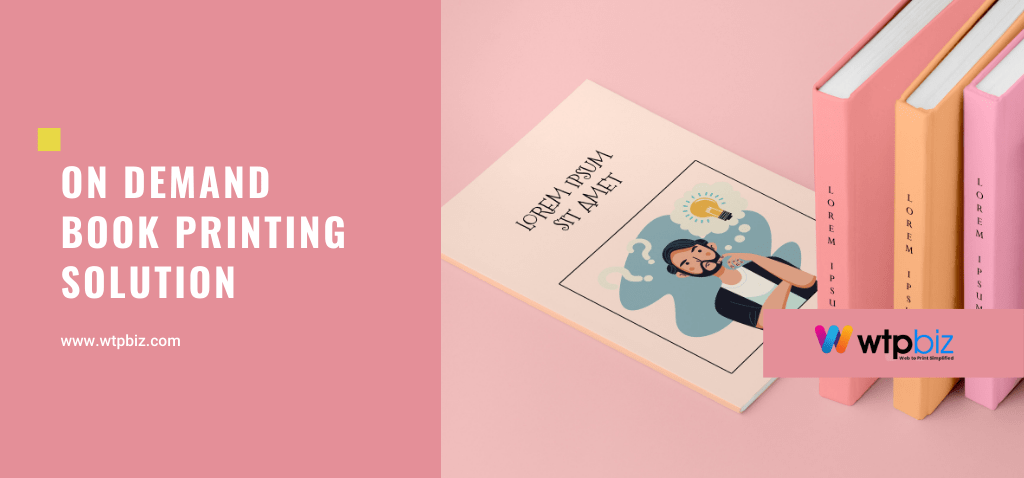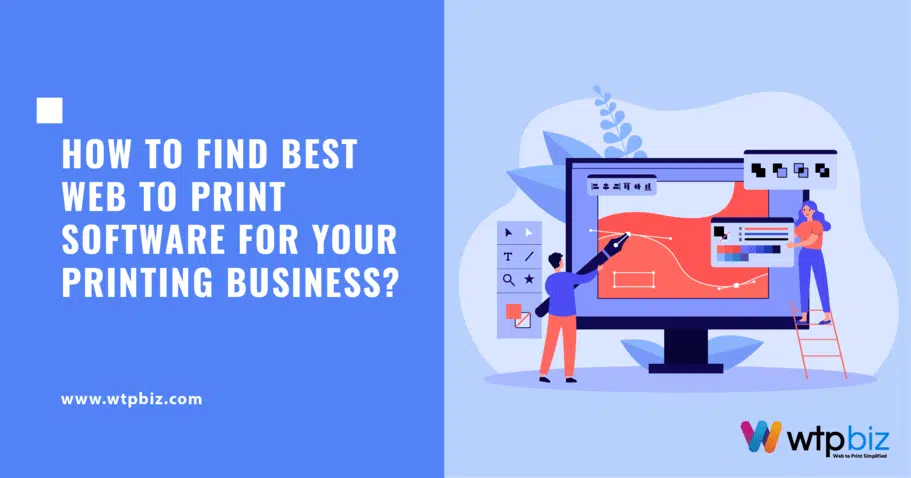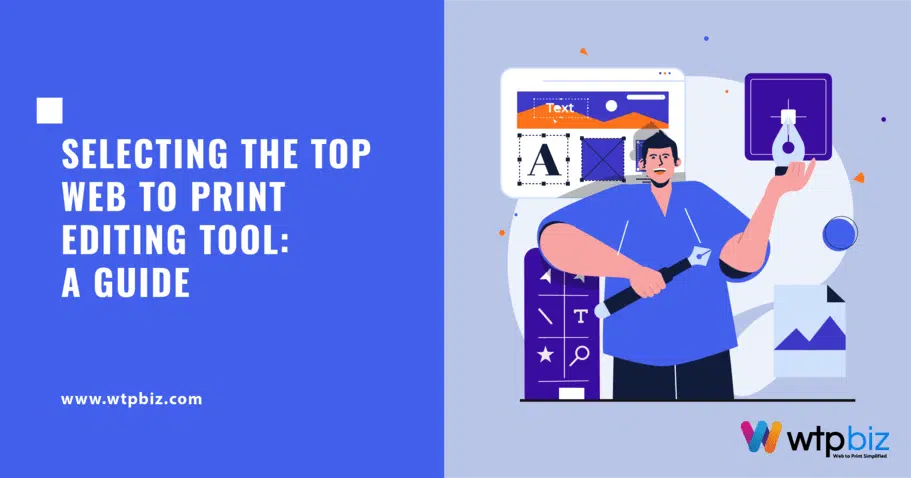Print-On-Demand Book Publishing: A Comprehensive Guide
Suppose you’re an aspiring author or a self-published writer looking to get your book into the hands of readers without the traditional publishing hassles. In that case, book print-on-demand publishing might be the ideal solution. This innovative approach to online book printing has revolutionized the publishing industry, providing authors with greater control and flexibility over their works. In this blog, we will explore the concept of Print-on-Demand book publishing in the USA and its many advantages.
Understanding Print-on-Demand:
Print-on-Demand is a printing and publishing process where book printing in small quantities or even as individual copies, based on demand. Unlike traditional printing, where many books are printed upfront, POD enables authors to publish and deliver their books to customers as and when orders are received. This means no excess inventory or financial risk associated with printing a large batch of books upfront.
Advantages of Print-on-Demand for Book Publishing:
- Cost-Effectiveness and Reduced Risk: Traditional publishing often involves high upfront costs, including printing, storage, and distribution expenses. With POD, authors can print books as they are sold, significantly eliminating the need for upfront investment and reducing financial risk.
- Flexibility and Customization Options: POD allows authors to make quick updates or changes to their books, such as cover designs or content revisions, without reprinting a whole batch. This flexibility ensures that your book printing is always up-to-date and tailored to your audience’s preferences.
- Global Distribution and Accessibility: Books can be printed and shipped globally through POD, ensuring readers can easily access your work. This widespread distribution network opens up new opportunities for reaching a broader audience.
Key Concepts: Web to Print and Online Book Printing
- We2print technology allows authors to submit their book files online directly to the printing service provider. This seamless digital process streamlines the printing and fulfillment of orders, making the publishing journey smoother and more efficient.
- Online Book Printing: Online Book Printing refers to the capability of ordering book prints through online platforms. Authors can upload their manuscripts and customize book specifications, such as paper type, cover design, and binding, before placing the order for printing and shipping.
Getting Started with Print-on-Demand Book Publishing
1. Choosing the Right Print-on-Demand Service Provider
Selecting the right service provider is crucial to kickstart your book print on demand journey. Look for a reliable POD company that offers a user-friendly platform, excellent print quality, and a wide range of customization options. Research customer reviews and compares pricing and royalty rates to ensure you get the best book deal.
2. The Process of Publishing a Book through Print-on-Demand
- Upload Your Manuscript: Prepare your manuscript according to the formatting guidelines provided by the POD service. Upload your file, including the book cover, to the platform.
- Customize Book Details: Choose book specifications such as trim size, paper quality, and cover design. Preview your book before finalizing the details.
- Order a Proof Copy: Before purchasing your book, order a proof copy to check for errors or formatting issues.
- Publish Your Book: Once satisfied with the proof copy, publish your book. It will then be available for purchase on various online platforms.
3. Preparing Your Manuscript for Print-on-Demand
Ensure your manuscript is correctly formatted according to the POD service’s guidelines. Pay attention to margins, fonts, and image resolutions. Utilize the publisher’s tools to create an appealing book cover that captures readers’ attention.
4. The Benefits of Print-on-Demand Book Publishing
- Cost-Effectiveness and Reduced Risk: By eliminating the need for upfront printing and storage costs, POD reduces financial risks for authors.
- Flexibility and Customization Options: Make real-time updates to your book without the hassle of reprinting.
- Global Distribution and Accessibility: Reach readers worldwide without worrying about shipping and logistics.
How to Prepare Your Book for Print-on-Demand:
1. Formatting and Design Considerations:
Before diving into print-on-demand, it’s crucial to ensure your book is formatted correctly for printing. This includes using suitable fonts, consistent chapter headings, and proper paragraph spacing. While creativity is essential, maintain a clean and professional layout to improve readability. Remember, your book’s design can significantly impact readers’ experience, so take the time to make it visually appealing.
2. Cover Design and Specifications:
Your book cover is the first thing readers will notice, so invest in a captivating design. Include a compelling illustration or photograph that complements your book’s genre and theme. Ensure the cover image meets the book print-on-demand platform’s specifications for resolution and size. A professionally designed book cover can significantly impact your book’s visibility and potential sales.
Marketing and Selling Print-on-Demand Books:
1. Promoting Your Book Online:
Once your book is ready for printing, it’s time to promote it online. Leverage various digital platforms to reach a broader audience, such as your website, blog, or author social media accounts. Engage with potential readers by sharing insightful content about your book’s theme and offering behind-the-scenes glimpses into your writing journey. Building a connection with your audience can foster interest and loyalty.
2. Utilizing Social Media and Digital Marketing:
Social media is a powerful tool for book promotion. Create eye-catching graphics and share engaging posts highlighting your book’s unique selling points. Collaborate with influencers or reader bloggers to expand your reach further. Additionally, consider running targeted digital marketing campaigns, such as Google Ads or Facebook Ads, to reach specific demographics interested in your book’s genre.
3. Print-on-Demand and Distribution Channels:
One of the significant advantages of print-on-demand is its distribution flexibility. Through print-on-demand platforms like Web2Print, your book becomes available to a global audience without needing bulk printing and warehousing. Additionally, explore opportunities to distribute your book through major online retailers like Amazon, which offer print-on-demand services. This ensures your text is readily accessible to readers worldwide.
Quality Control and Customer Satisfaction
1. Ensuring Print Quality in Print-on-Demand Publishing
In the print-on-demand (POD) model, every copy of your book is printed only when an order is placed. This method presents some unique challenges in maintaining consistent print quality. When opting for POD publishing, choosing a reputable POD service provider that employs high-quality printing techniques and uses premium materials is crucial. This ensures that your readers receive books that meet professional standards and leaves a positive impression.
2. Customer Service Best Practices for POD Books
Excellent customer service is paramount in the realm of book print on demand. Respond promptly to any inquiries or concerns from your readers or potential customers. Addressing their questions and helpful assistance can foster trust and loyalty, leading to positive reviews and word-of-mouth recommendations. You build a strong relationship and a loyal reader base by engaging with your audience.
Copyright, Legal, and Financial Aspects
1. Understanding Copyright and Intellectual Property Rights
Protecting your intellectual property is of utmost importance in print-on-demand book publishing. Before proceeding, ensure that you hold the necessary copyrights for your content. Plagiarism and copyright infringement can lead to serious legal consequences and damage your author’s reputation. Familiarize yourself with the copyright laws in your country and consider consulting with legal professionals if needed.
2. Royalties and Payment in Print-on-Demand Publishing
One of the significant advantages of book print-on-demand publishing is the ease of receiving royalties. Most POD service providers offer transparent royalty structures, allowing authors to earn a fair share from each sale. Be sure to compare royalty rates among different platforms to make an informed decision that aligns with your financial goals.
Tips for Success in Print-on-Demand Book Publishing
1. Niche Selection and Target Audience Analysis
Identifying a profitable niche is vital for success in the book print on demand publishing world. Conduct thorough market research to uncover niche topics or genres with demand but less competition. Tailor your content to cater to the interests and preferences of your target audience, ensuring your book resonates with them.
2. Building an Author Platform and Engaging with Readers
In the digital age, building an author platform is crucial for effectively marketing your print on demand book. Establish a solid online presence through a professional website, social media channels, and engaging content creation. Interact with your readers, respond to their comments, and participate in relevant book-related discussions to create a sense of community and loyalty among your audience.
The Role of the Web to Print (WTP) in Book Publishing
In the dynamic world of book publishing, Print-on-Demand (POD) has emerged as a revolutionary method that allows authors and publishers to produce books efficiently and economically. At the heart of this innovation lies the web to print (WTP) technology, a game-changer in the industry. WTP has redefined how books are published and made available to readers, and its impact is only growing.
Web to print technology is a powerful online solution that connects authors, publishers, and readers seamlessly. It allows users to submit their book files electronically through a web platform, eliminating the need for traditional printing processes. With just a few clicks, authors can upload their manuscripts, cover designs, and other specifications, making online book printing more efficient and cost-effective.
WTPBiz: The web to print Software Provider
One of the leading providers of web to print solutions is WTPBiz, a cutting-edge software company dedicated to helping authors and publishers embrace the potential of Print-on-Demand book publishing. Their user-friendly platform empowers users to manage their book projects effortlessly, from customization to distribution, all in one place. With WTPBiz, authors can focus on their creative endeavors, knowing that their books will be produced with the utmost quality and delivered promptly.
The Future of Print-on-Demand Book Publishing
As technology continues to evolve, book print on demand book publishing is positioned to shape the industry’s future. Embracing the potential of POD offers numerous benefits for authors, publishers, and readers alike.
1. Trends and Innovations in the POD Industry
The POD industry is witnessing a surge in popularity as more authors recognize the advantages of this approach. The ability to produce books in small quantities based on real-time demand significantly reduces inventory costs and waste. Additionally, POD allows for greater flexibility in book design, enabling authors to cater to specific niche markets and individual reader preferences.
Furthermore, the rise of online bookstores and e-commerce platforms has made it easier for authors to reach a global audience. POD enables books to be printed and shipped directly to readers, irrespective of their location, making international distribution more accessible than ever before.
2. Potential Challenges and How to Overcome Them
While Print-on-Demand has transformed the publishing landscape, it is essential to address potential challenges that authors and publishers may encounter. One such challenge is ensuring the print quality of each book. Collaborating with a reputable POD provider like WTPBiz ensures that the final product meets professional standards, guaranteeing reader satisfaction in the USA.
Another aspect to consider is marketing and promotion. With the increasing number of books published through POD, authors must invest in marketing strategies to stand out. Building a robust online presence, engaging with readers through social media, and seeking reviews from reputable sources can boost book visibility and sales.
Conclusion
The world of book publishing has been transformed by Print-on-Demand, offering unparalleled opportunities for authors and publishers to reach their audiences with greater efficiency and reduced costs. Through web2print technology, authors can seamlessly bring their creations to life, and readers can easily access their favorite titles.
Regarding web to print solutions, WTPBiz is a reliable partner for authors and publishers. Their user-friendly platform, backed by advanced technology, streamlines the book publishing process, ensuring top-notch quality and on-time delivery. By leveraging WTPBiz’s expertise, authors can focus on their writing, confident that their books will be printed and distributed professionally and precisely.






